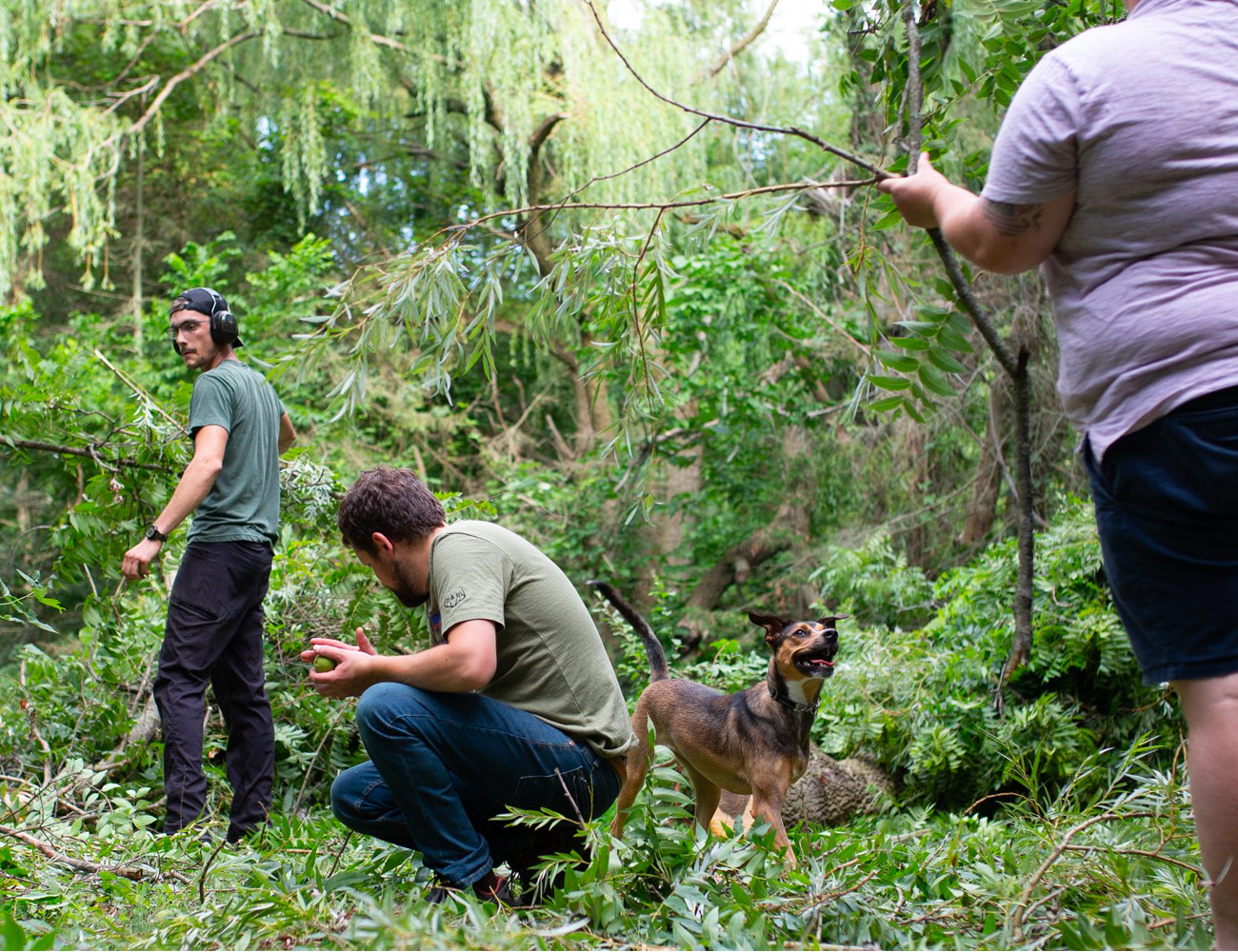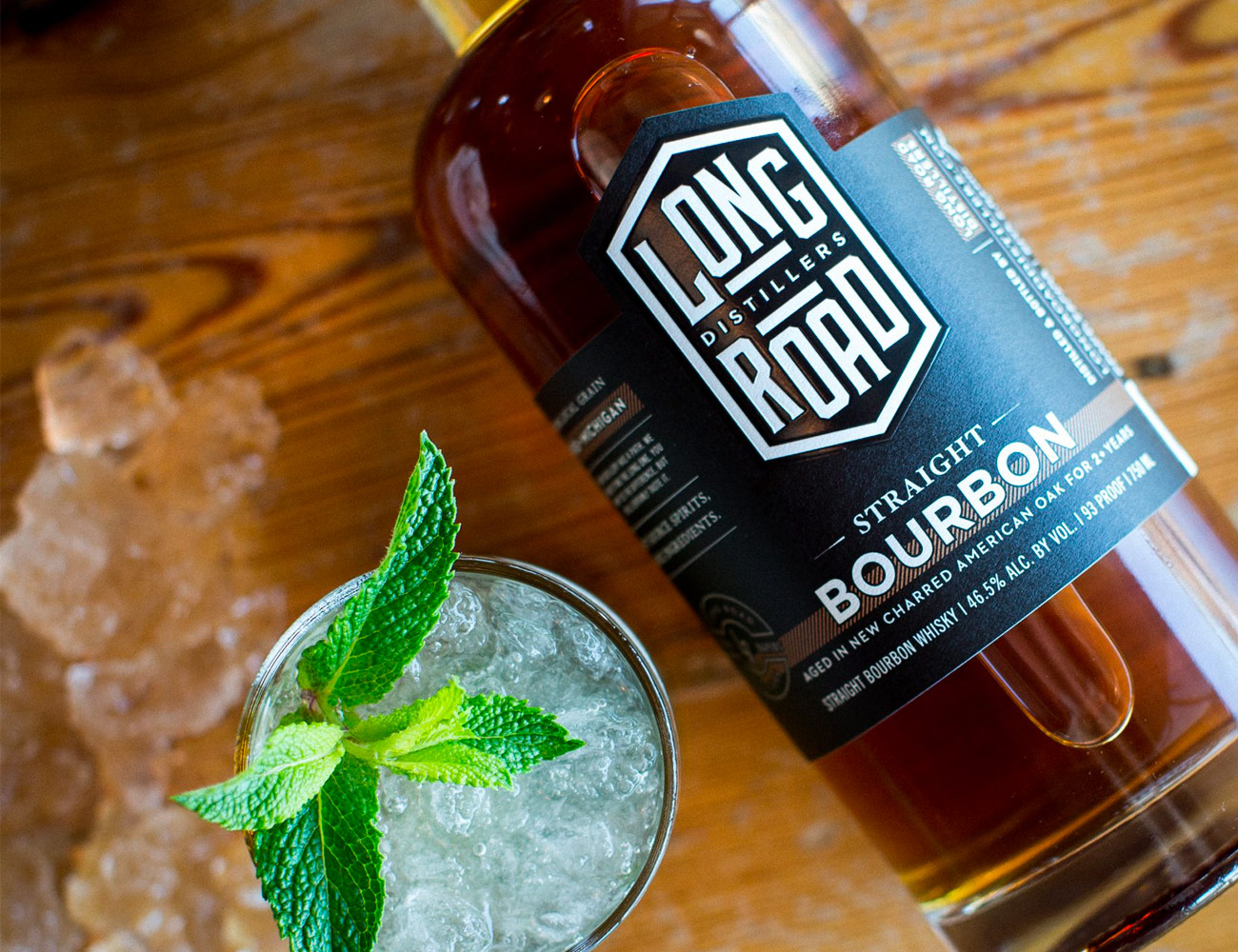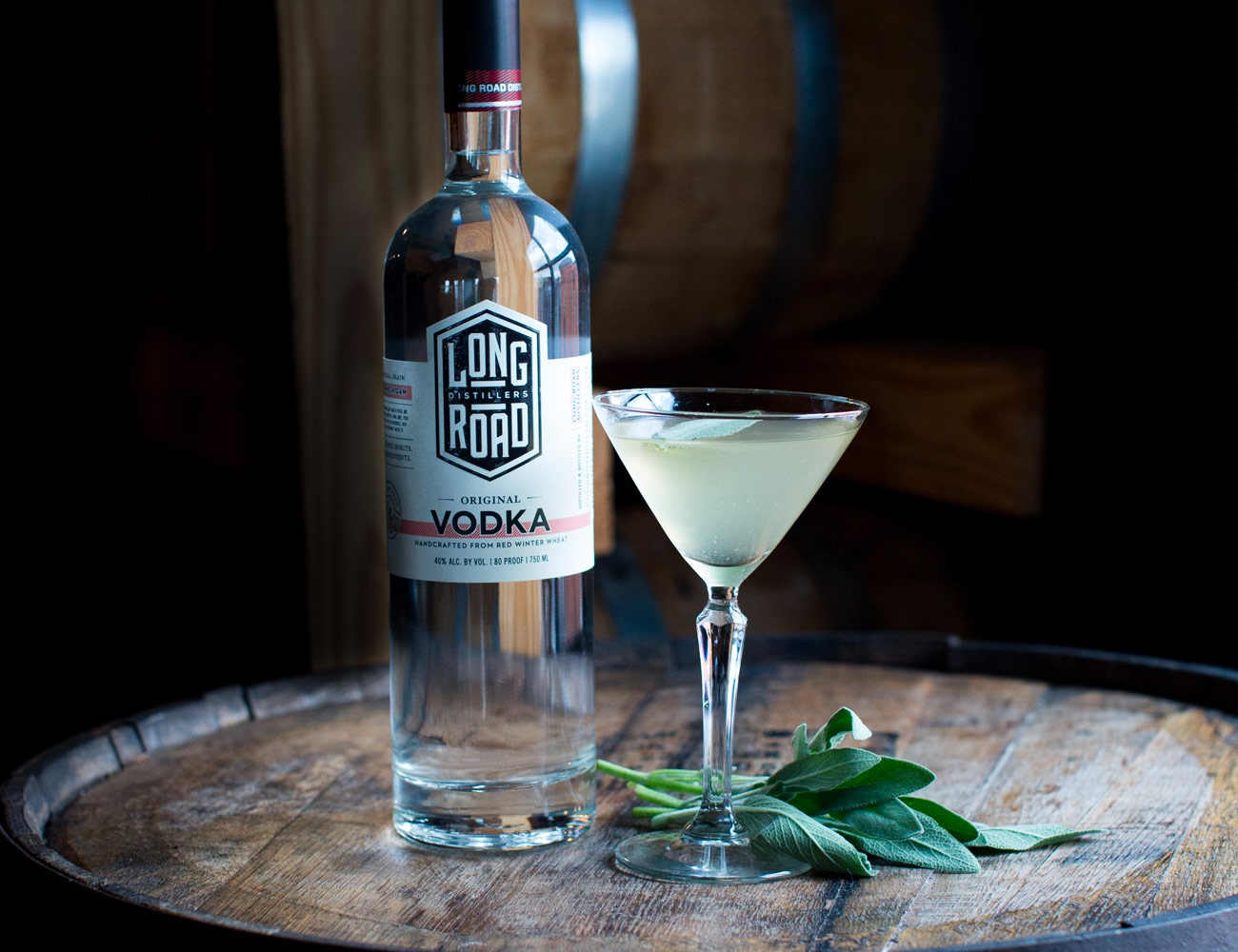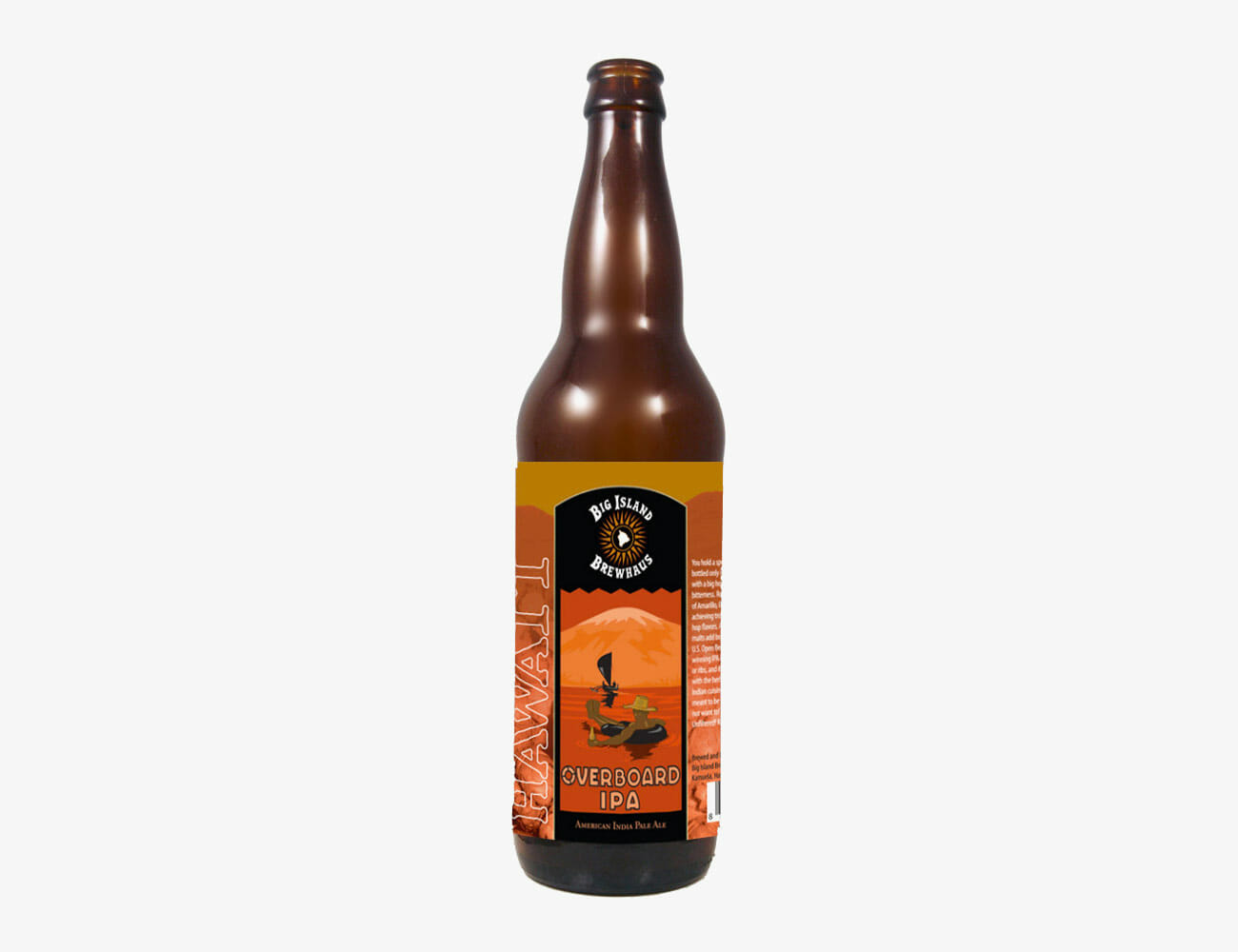T
hirty miles off the northwestern coast of Michigan’s Lower Peninsula, a lush green island, bordered by blonde beaches, sits amidst an archipelago in Lake Michigan. Billed as “America’s Emerald Isle,” Beaver Island was once a bastion for Mormons and fishermen. Today, it’s home to just 500 residents, scattered among 56 square miles of forest. Not far from Traverse City and other mainland resort towns, Beaver Island is a quick boat ride away for tourists in search of true wilderness. Few places in the continental U.S. offer such seclusion so close to civilization.
Among the plant life, the residents of Beaver Island struggle with an overabundance of juniper, an invasive, berry-bearing coniferous shrub that can spread like a virus. Luckily for an ambitious Michigan distillery, the shrub’s essential oils are the primary flavor driver in gin.
The owners of Long Road Distillers in Grand Rapids, Michigan, learned of Beaver Island’s plentiful supply of the plant and set off to assist the island’s 500 residents in controlling the weed-like opponent. Kyle VanStrien and Jon O’Connor, who founded the distillery in 2015, saw the trip to Beaver Island as a perfect opportunity to further their commitment to using local ingredients in their products and bring their staff together.
Last fall, VanStrien and O’Connor took a ferry to the island and collected more than 200 pounds of juniper berries, which they used to distill a gin made from Michigan-only ingredients, aptly called Michigin. The spirit also included wheat, hops and other botanicals sourced from farmers throughout the state.

“What started out as strictly a juniper-picking trip turned out to be a great opportunity for our team to work together on a product that epitomizes our core values and our shared vision for crafting world-class spirits from local ingredients,” O’Connor said. “Not only that, the finished product is unlike any other gin on the market due to the unique flavors we were able to extract by using local juniper and distilling it fresh.”
Wild Michigan juniper at the whim of the elements of being grown in the middle of Lake Michigan, so it’s much softer and not as piney as commercially-grown juniper, instead offering more cedar and vegetal notes.
O’Connor and VanStrien return frequently to Beaver Island, now via plane, to collect more juniper for batches Michigin, one of two unique botanical spirits the distillery prides itself on, along with a line of conventional gins. Long Road’s reputation, meanwhile, has slowly built on the other: aquavit. Aquavit, a gin-like Scandinavian spirit featuring caraway or dill rather than juniper is not widely available in the United States. Prior to Long Road, just one aquavit was available to buy in Michigan.
When Long Road won a gold medal and best of show — tied with Dewar’s 1846 Signature Scotch Whiskey — for its aquavit at the 2016 Denver International Spirits Competition, there was excitement at the distillery, but little did the owners know what the spirit had in store.
“We knew it’d be good, but we didn’t know if people outside the spirits world would know what it was,” O’Connor said. “The fact it was awarded Best in Show was surprising to us, but it set us on a course of people paying attention to this big, bold, balanced spirit. It speaks to spirits connoisseurs, people who enjoy cocktails and people who appreciate things not on the radar. It’s starting to gain real traction in the world.”
There was always a glint of big aspirations for the aquavit. A label for Long Road Aquavit was one of the first four the business had made before a drop of alcohol was ever distilled.
“When we set out, we knew we wanted to make a few products unique to the market,” O’Connor said. “We really liked the taste of the very few we had access to and thought we’d just make our own. We know we try to make every spirit as high quality as possible, and the recent recognition in the spirits world is a real validation that we’re making a spirit that’s exciting for drinkers across the board.”

In the months following the win in Denver, the spirit won similar honors at competitions in San Francisco, San Diego, Los Angeles, New York and American Distillers Institute Awards. In 2017, the aquavit continued its winning streak, including a Best of Show at the American Craft Spirits Association Awards, where spirits writer Fred Minnick learned of the distillery’s pride and joy.
“Nothing tickled my palate quite like an aquavit I tasted when judging the American Craft Spirits Association Competition,” Minnick wrote following the competition. “That aquavit was Long Road Aquavit from Michigan. It won Best in Show. I cannot say this enough: Go find this spirit, buy it, mix with it, sip it neat, enjoy and familiarize yourself with the category. You’ll thank me later.”
Not long after Long Road won Aquavit Distiller of the Year at the 2017 Berlin International Spirits Competition, the distillery was invited to the Spirikum Festival in Denmark in August 2017, where they showed off their product to the spirit’s native producers, shipping 12 cases of aquavit and the aged version, Old Aquavit, to Europe. Despite the journey and discussions with European distributors, Long Road Aquavit is still confined to the Michigan borders.
Many bartenders in Michigan have fallen for Long Road products. When VanStrien stopped into the Detroit bar Sugar House, owner Dave Kwiatkowski took notice of their story. Kwiatkowski said his bars don’t work much with small distilleries because they move so much product, but the quality and backstory of Long Road shone through.
“We get a lot of people coming through with products, but I was really into their story,” said Kwiatkowski, who also owns several other Detroit bars and restaurants, including Wright & Co. and The Peterboro. “Everything they make is grain to glass and in-house, not a lot of people are doing that. They’re taking the long road, the slow way, and the correct way.”
That correct way, along with a good backstory, is what pushes new distilleries to be successful, said Bill Owens, the founder and president of the American Distilling Institute. There’s also the emerging popularity of spirits beyond vodka, gin and whiskey to thank.

Aquavit is the example Long Road has set out to make for all their spirits. Long Road Vodka defies conventional vodka standards with massive notes of butterscotch. Gin, brandies and whiskeys all round out the Long Road lineup. “They’ve hit some home runs,” Owens said of Long Road’s product line.
The concentration on spirits like an all-Michigan gin and the aquavit showcase Long Road’s dedication to quality while adhering to style guidelines, yet still breaking the rules.
In breaking those long-standing spirit rules, Long Road only makes their products from ingredients that are locally grown or readily available in Michigan, and every drop of alcohol is made in-house at their distillery, grain-to-glass.
By supporting local producers, O’Connor and VanStrien hope they can make a difference in Michigan and create a brand well-respected by consumers and other distillers across the globe; a path they feel they’re on with the success of their products like aquavit.
“Our story to tell is we decided to do this the right way, the way it’s meant to be done,” VanStrien said. “We can do it really well here and we can highlight this part of the world by making spirits with ingredients here.”
There’s not a long history of Michigan spirits, nor do O’Connor and VanStrien have family stories of distilling in the woods behind the house. Their love for spirits, however, is deeply rooted in the traditions of big distilleries simply making the best products.
O’Connor and VanStrien regularly make visits to the rolling hills of Kentucky to pay tribute to the distilleries that laid the foundation for the entire American distilling industry. Walking the halls at Wild Turkey, and admiring the ability to turn one mash bill into 10 products. Unlike the proliferation of the nation’s small breweries in protest of big beer, big spirits are largely the inspiration of the nation’s new wave of small distilleries.
“I have so much respect for the Harlen Wheatleys and Jimmy Russells, the people in this industry who are so insanely talented and committed to their craft and passionate about what they do,” O’Connor said. “Kyle and I have a huge respect for doing the things the right way. We’re not willing to compromise on our values to make a quick dollar.”




